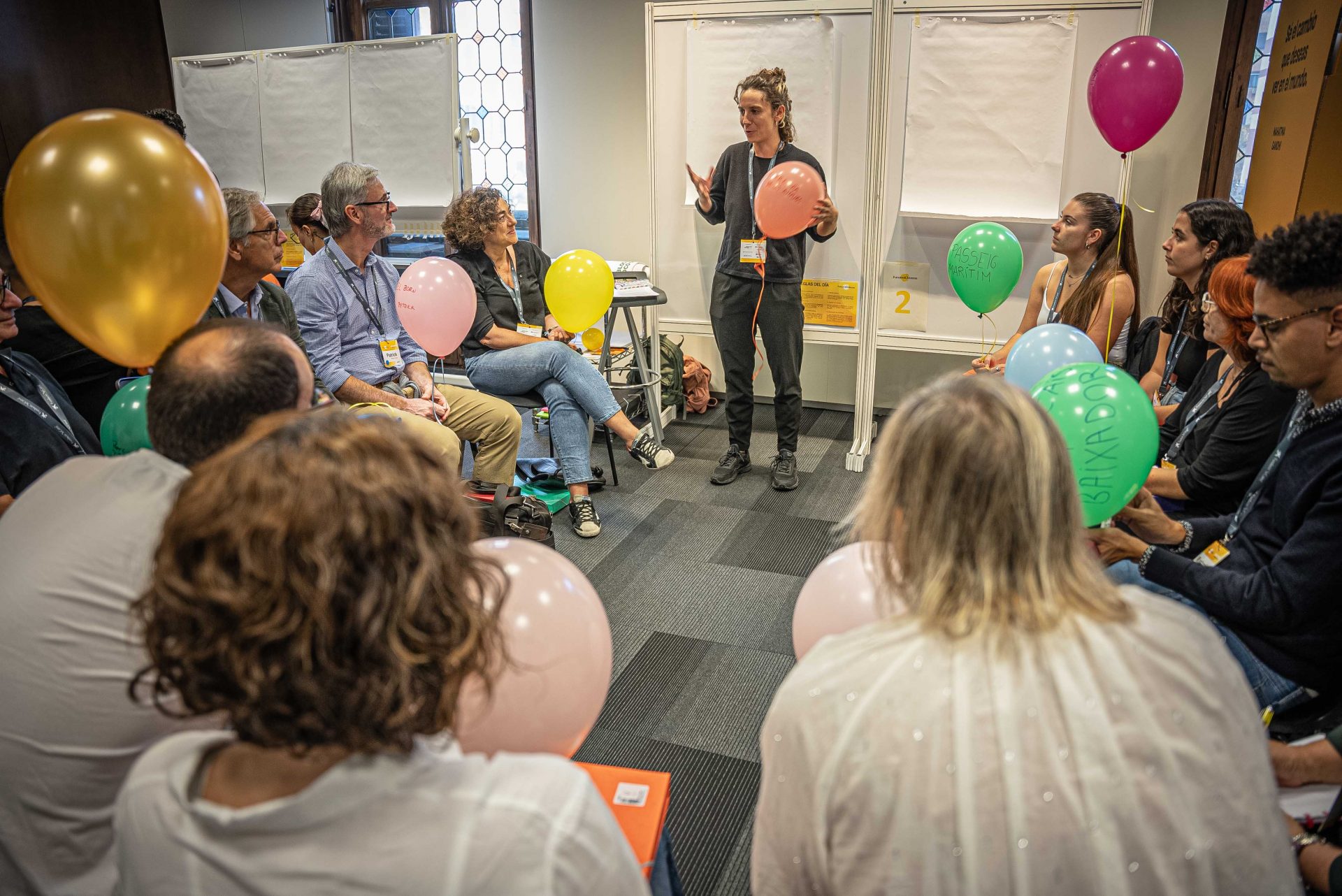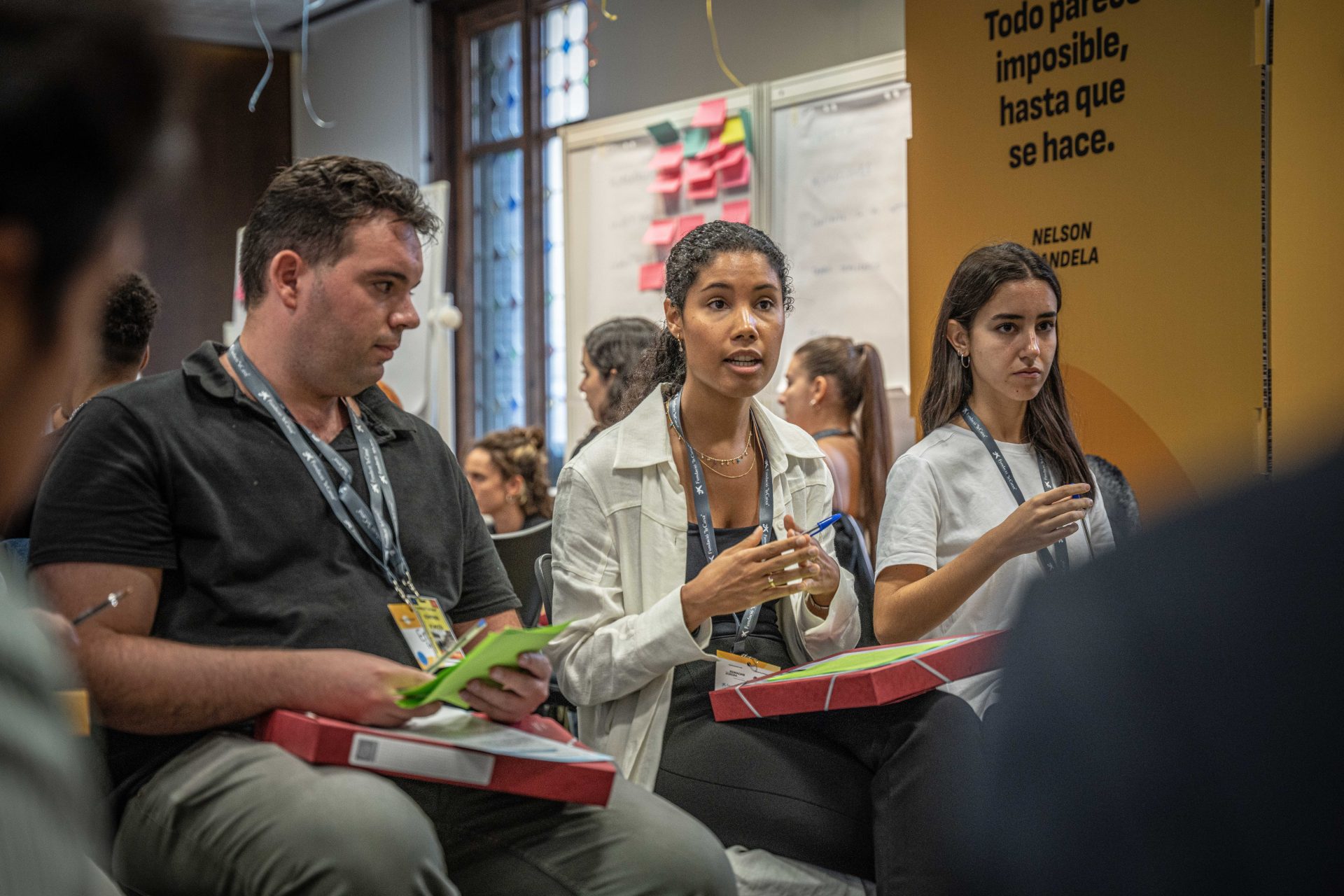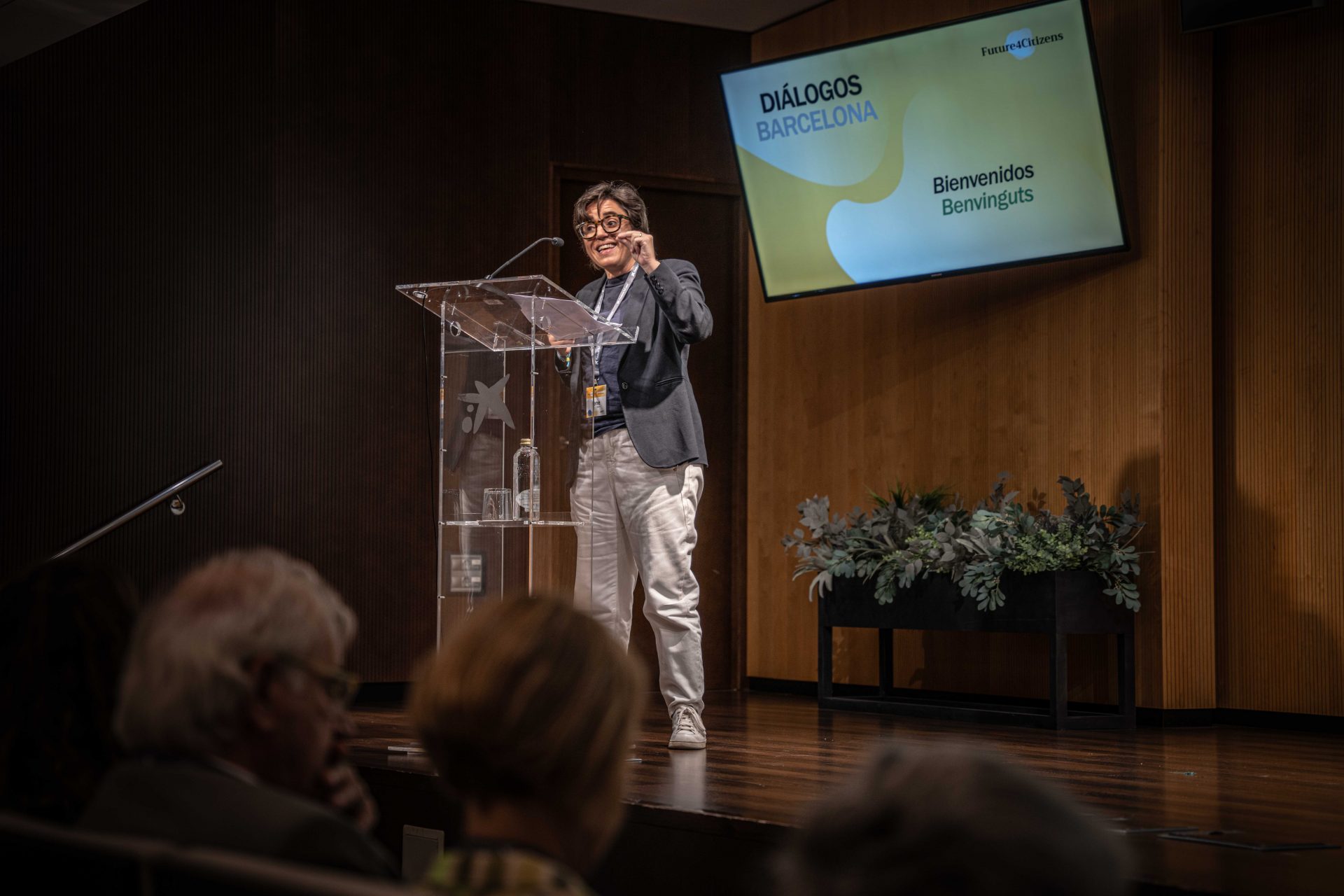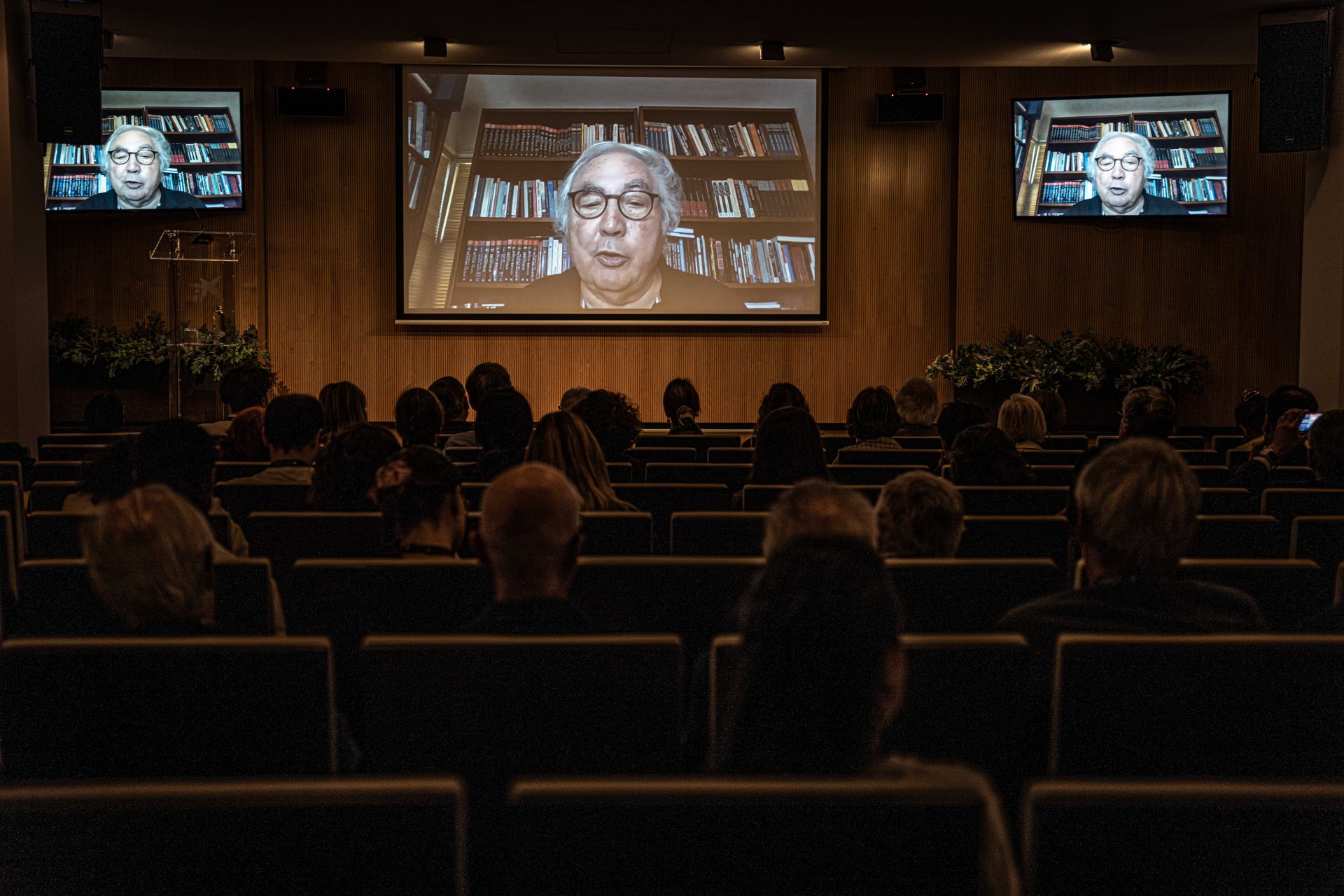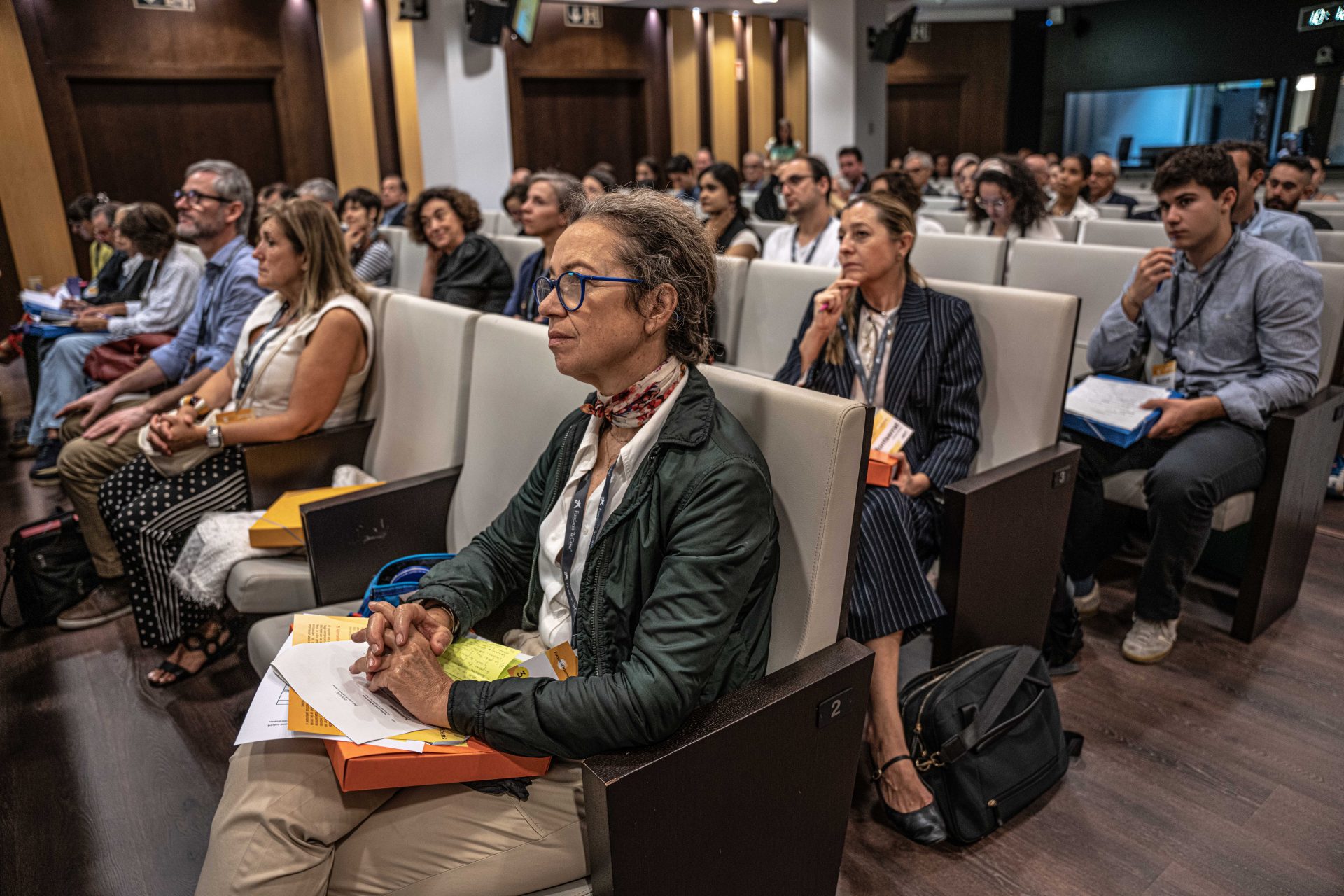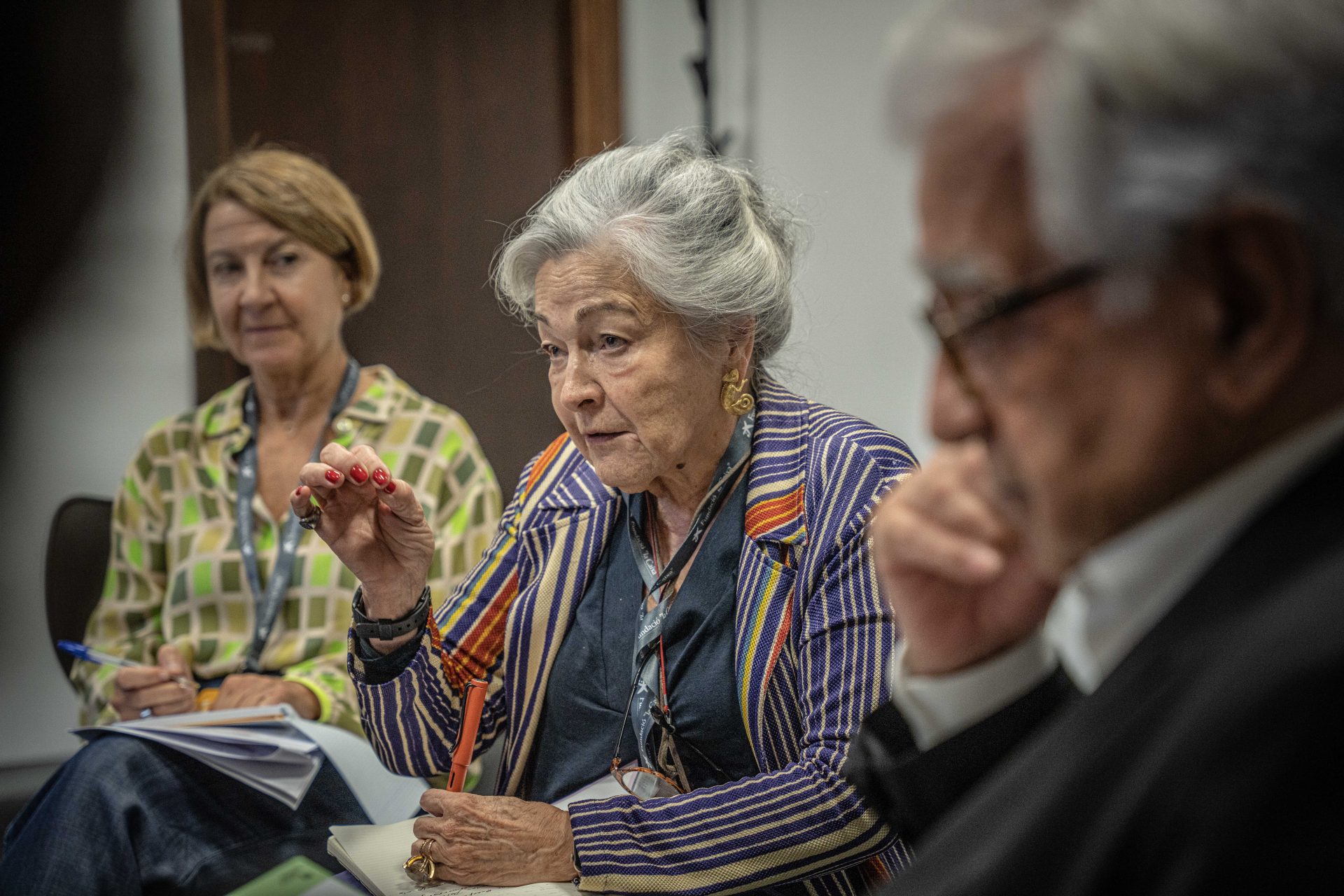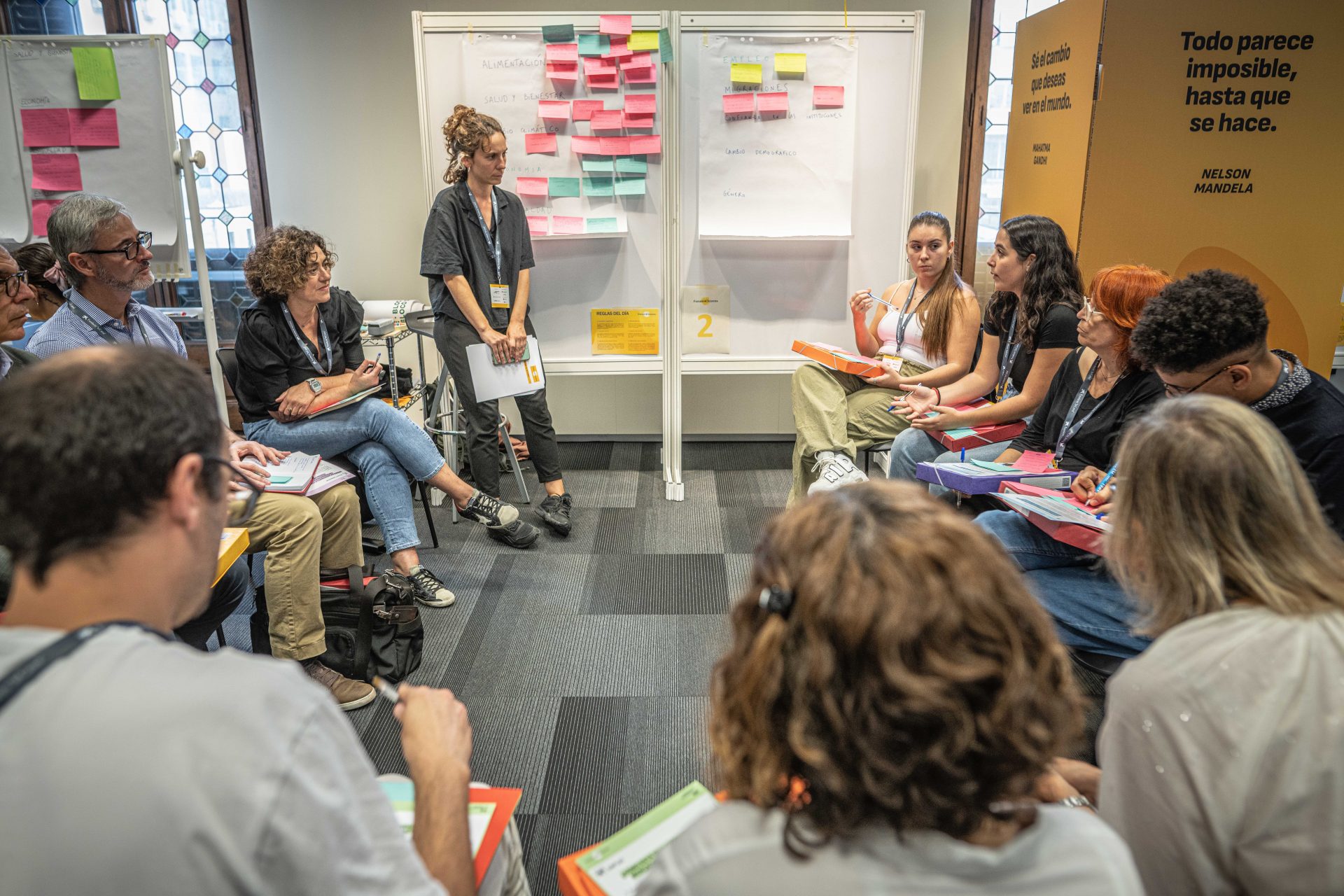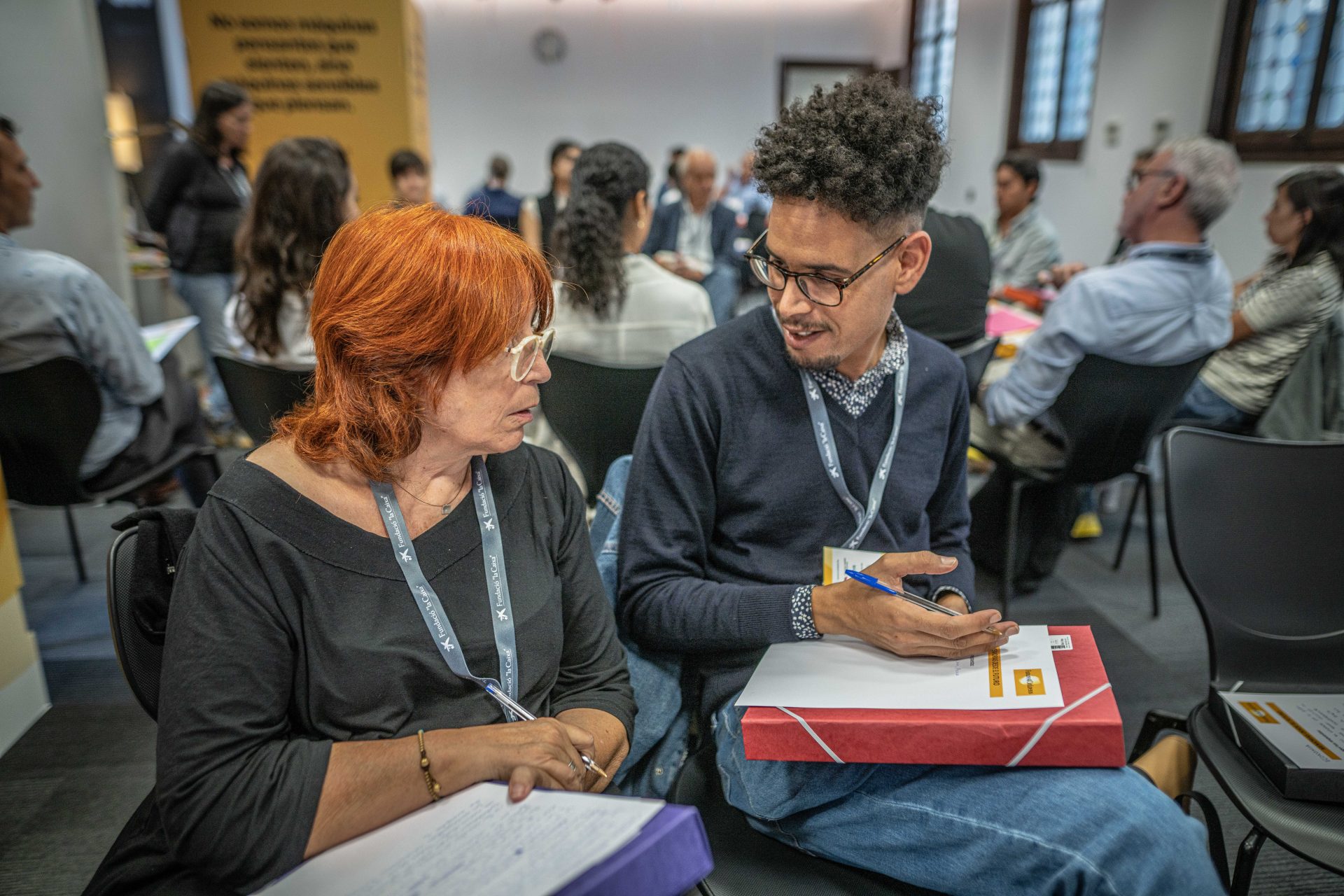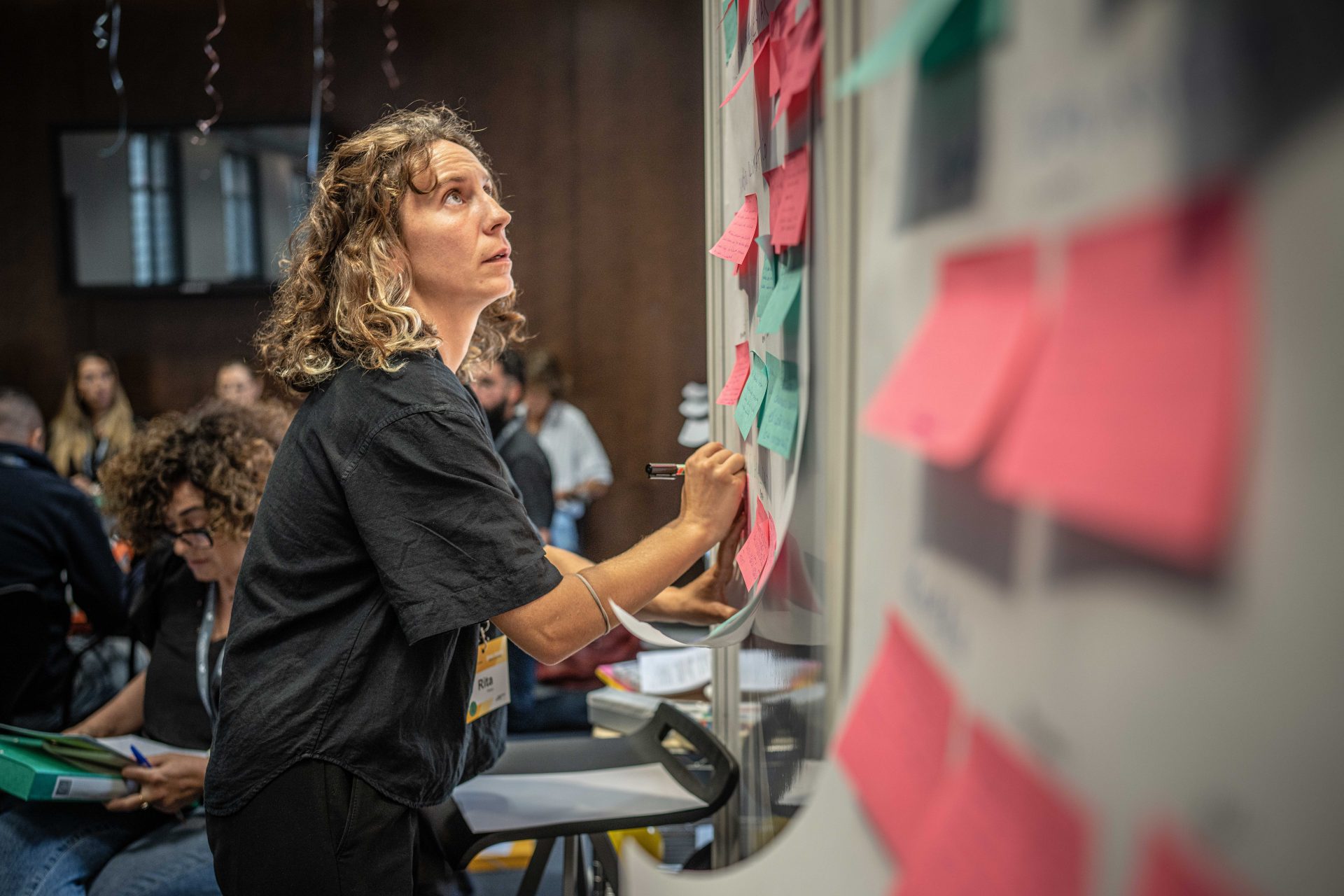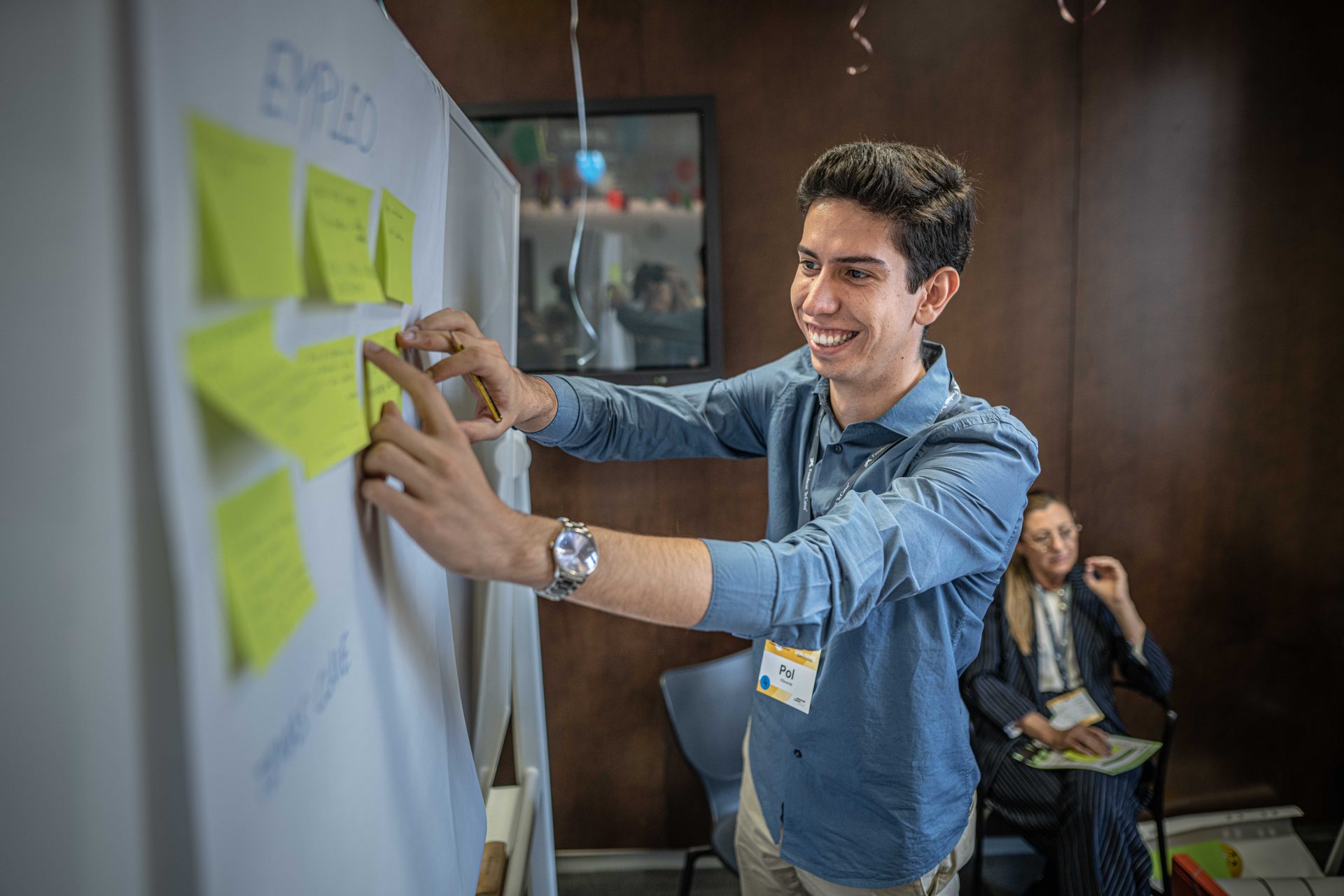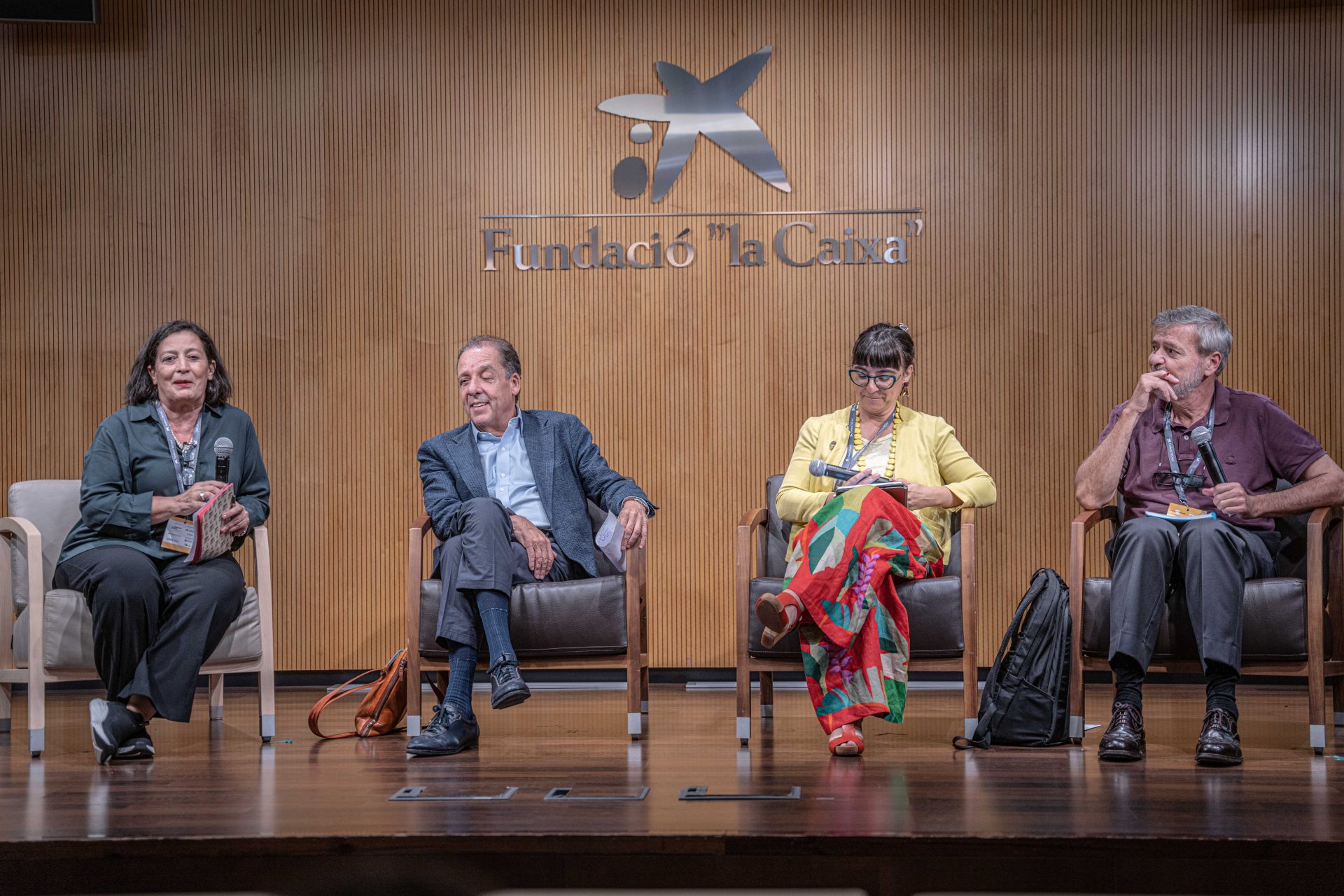The Laberint d’Horta Park, the Eixample, the Road of the Waters (Carretera de les Aïgues), the route to Baixadó de Vallvidriera, the Gabriel García Márquez Library … the list of favorite places of Barcelona shared by participants in the Future4Citizens Dialogues present dozens of parks, neighborhoods and hidden corners of the city. Yet, when asked about what makes these places special for them, the answer is almost unanimous: it gives me peace.
More than fifty citizens between 18 and 83 years old participated in the first Future4Citizens Dialogues (F4C) organized in Barcelona by Re-Imagine Europa, Fundación La Caixa and the Spanish Committee of the European League for Economic Cooperation (LECE). The event, organised as part of Barcelona, European Capital of Democracy, gathered national and foreign students, professionals working for a wide variety of public and private institutions, unemployed citizens, small entrepreneurs, youngsters who came to the country as non-accompanied minor migrants, experts from civil society organizations, and former members of the European Parliament. A multicultural mosaic representing all the key socio-demographic sectors of one of the more vibrant cities of Europe. Irene Milleiro, Director of Ashoka Spain, encouraged the participants during the opening session to be active and engaged because “each of you forms an essential piece of the puzzle that is our collective future. You are more than mere participants: you are agents of change.”
Working with Re-Imagine Europa’s methodology (Listen, Reframe, Act), the F4C Dialogues aim to depolarise conversations in the public sphere and breaking the Cycle of Distrust installed in most countries by addressing the real causes behind the sentiment of societal discontent and rethinking modern challenges from a common ground. Participants worked on the design of alternative scenarios and solutions to build a brighter future for all citizens, with proposals that share strong social and environmental approaches: from love the planet as you love yourself (with a wide variety of concrete ideas to build a more sustainable economic system) to extending the democratic values to the corporate world, or introduce gender education in schools, companies and public administrations.
The two requests most widely shared by participants: more transparent and accountable public administrations and a taxation system with more fiscal equity to help combat economic inequality. Petitions directly connected with two of the main reasons of the current social and political unrest: the lack of trust in public institutions and the extended perception that the current taxation system is unfair and inadequate for the 21st century economy. The visions/outcomes of the Dialogues were presented by the experts Fernando Guirao, Alicia Perez-Porro and Xavier Prats-Monné, who followed closely the debates, and they all agreed that “there was a very strong social component in the debates” and the power that a community with shared values can have in producing new ideas was clear.
An observation reinforced and highlighted by Erika Stael von Holstein, Chief Executive of Re-Imagine Europa, because “ideas are the most powerful thing we have as humans, it is what unites us, it is what builds our future, it is what defines how we move forward. In this new digital world, we need these new ideas. If we can build new shared ideas that we all agreed on, we can make them happen because the only thing that can block us is not believing in these new ideas.”
Citizens growing despair and lack of trust in institutions were also highlighted during the morning keynote speech by Professor Manuel Castells, Wallis Annenberg Chair Professor in Annenberg School of Communication (University of Southern California) and former Minister of Universities in Spain. “The majority of people in the world and in Europe do not trust political and bureaucratic institutions“, he said. This calls into question all policies and “leads to growing polarization, on all issues. Because totally destructive discourses enter in this vacuum of credibility of the institutions.” Something that happens fundamentally through social networks: “but this is not the fault of social networks,” he noted. Social networks are us. All kinds of ideas, tendencies and ideologies are expressed.”
To find solutions that we truly accept, Castells considers it essential to regain trust and our own narrative. “The Future4Citizens Dialogues aim to enable people to recover the story of their lives, something essential to be able to make our own decisions based on our own understanding of the world in which we live, through deliberation between all of us. Without this, there is no awareness. And without awareness, there is nothing”.
The professor recalled that the next European Elections 2024 open a new opportunity to “return to the Europe of values and project them into the future.” “The construction of the European Union represented the hope that we can live together, build together, dream together, have the institutional, social and political strength to build a collective consciousness to be able to propose a better world,” he added.
On the occasion of the European elections, “we can take the opportunity to launch a series of civic debates that build a collective conscience and, in some way, a collective European voice that proposes new ideas and a will to co-exist, live together and dream.” A project initiated with the Future4Citizens Dialogues, that are part of Barcelona, European Capital of Democracy, which will be accompanied by similar events in other European capitals within ORBIS (Augmenting participation, co-creation, trust and transparency in Deliberative Democracy at all scales), a Horizon Project led by Politecnico di Milano which aims to promote new forms of democratic participation in Europe.
